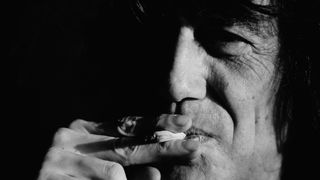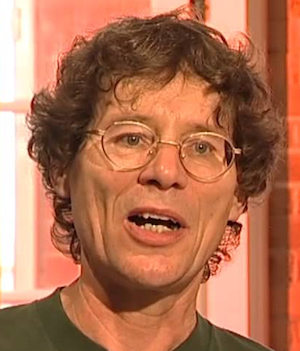A much favoured motto among businessmen is ‘Adapt to survive’.
It’s pretty popular in evolutionary circles as well. Howard Marks, the world’s most famous dope dealer, certainly applied the theory to his business in the 70s and 80s, when he was reckoned to be responsible for shifting around a quarter of the world’s cannabis shipments.
And he’s applied it to his evolutionary career since being released from prison in America in 1995, transforming himself from The World’s Most Evil Drug Baron (according to the tabloids) into an author, raconteur and spokesman for the cannabis class of ’64 – not to mention ’74, and ’84, ’94 and probably ’04 as well.
The secret to Marks’s success appears to be charm. It was charm that got him out of the Welsh valleys and into Oxford University, and charm that enabled him to seduce the well-bred totty he found there; charm that established the contacts that took him into the world of international drug smuggling; charm that got him out of potentially compromising situations (most memorably when he claimed to be a member of the Mexican Secret Service when caught with a large quantity of hashish); charm that saved his white ass in a tough, black prison in America after his luck ran out; charm that made his autobiography, Mr Nice, a best seller; charm that makes An Audience With Mr Nice, his DVD of last year’s stand-up tour, so entertaining.
He’s being pretty charming amid the clutter of his small flat in the shadow of the Chelsea Football Ground, too, as we talk about the rock’n’roll soundtrack to his exotic life. His craggy, impish face and deep Welsh brogue add to the charm.
It’s just after midday but he’s been up since the crack of dawn doing TV and radio interviews, chugging along on a succession of joints rolled by his assistant.
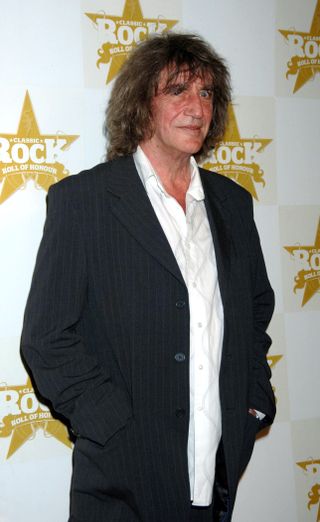
Not surprisingly, it gives him a somewhat enigmatic air, although that may also be due to a continual flashback to the mid-80s when he was hiding under any of 43 aliases with an impressive array of disguises and passports. But beneath the shaggy mane of hair his brain remains alert and responsive. He didn’t get from being Britain’s Most Wanted Fugitive and the depths of a US prison cell to this cosy flat without being one wily survivor.
He also appears to have a surprisingly intact 60s vinyl collection, stacked along the bottom shelf of a bookcase against one wall of the sitting room. There are not just the obvious classics, but also the budget compilations that were a staple part of any rock fan’s collection at the time but never survived into the next decade, let alone got revived on CD.
In common with a large proportion of his generation, the first record the young Howard Marks bought was Bill Haley’s Rock Around The Clock, in 1955. Unlike most of them, however, Marks can still remember the B-side – 13 Women: “It was all about ‘thirteen women and only one man left in town’,” he chuckles. “The only music I knew was classical music, until I discovered Bill Haley and Radio Luxembourg.”
The parental reaction to the ineffably straight, prematurely middle-aged Haley was crucial: “They really didn’t understand it, and they thought that there was some horrible problem with it. That made it an alienating kind of path to take. And then Elvis attained a god-like status in most of our minds. I particularly liked Little Richard as well. His music seemed to jump right out of the speakers”
Marks’s horizons broadened rapidly after he smoked his first spliff while at Oxford University: “I smoked dope, read Jack Kerouac, listened to Bob Dylan and Roland Kirk and went to French movies. About a year later I went to the Wholly Communion at the Royal Albert Hall that had Allen Ginsberg, Lawrence Ferlinghetti and all those other legendary beat poets. That was around the time I first started taking acid. And it was a very significant experience, too, a lot of stuff to come to terms with in one’s head. You certainly didn’t think of it as being a club drug or anything like that, it was a mind-altering, profound experience.”
Which suggests that acid back then was different to acid now. “Well, I only take it about once a year now, maximum. And I have had similarly strong experiences with liquid acid in Ibiza. But that was the first time it approached that level of intensity. On the whole I think it’s a different drug now.”
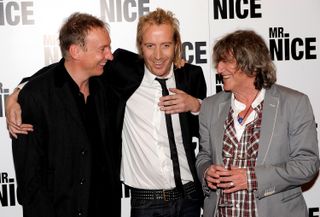
Mark’s first dealings with the music business came when he was appointed Entertainments Officer at university, and was responsible for booking bands for the end-of-year May Ball. “In those days you could book bands months in advance, so the game was to try and spot those that were likely to become famous,” he recalls. “I used to take a massive interest in which British bands would next make it. And I was sure that the Spencer Davis Group, with Stevie Winwood, would do it; The Small Faces were definitely going to hit it soon as well. So I booked them for absolutely fuck-all – about £50 each or something.
“So obviously when they had massive hits with Keep On Running [Spencer Davis Group] and Sha La La La Lee [Small Faces] they pulled out. But because there were penalty clauses involved we suddenly found ourselves with a much larger amount of money to play with, and I managed to book the Kinks, Them and Alan Price. It was [Kinks mainman] Ray Davies’s twenty-first birthday, I remember, and I presented him with a bottle of champagne, and had a smoke with Van Morrison.”
Marks did not follow up his music business contacts when he progressed from academia to dealing. “I never sold to rock stars, either directly or even one step away – record companies, managers or what have you. I was a street [dope] dealer in Oxford, then I moved to become a wholesale dealer in London and then a smuggler. So it was at a level that kind of escaped dealing with those people. I remember going to the first Isle of Wight Festival, Glastonbury and the big festival at Shepton Mallet, but I went as a fan; the two things never crossed over.
“It wasn’t deliberate, that’s just how it happened. And I know there was a lot of that sort of thing going on. I’d have loved to be smoking dope with rock stars,” he laughs throatily. “I just never got the invite! Plus,” he adds, a tad more soberly, “it was also a matter of being a bit cool about it all and trying to avoid detection and all that sort of thing.”
But Marks did make cunning use of the rock business for one of his most audacious scams of the 70s: smuggling cannabis to the US in unsuspecting rock bands’ equipment. “That happened when British bands started touring America with their own equipment,” he recalls. “And some of these bands were taking huge amounts of equipment on tour with them. I remember ELP were travelling around with three container loads of equipment – you can carry a heck of a lot of dope around in there.
“We talked to some roadies who knew about the procedure, and we discovered that the equipment didn’t go in like normal goods because it was only being imported temporarily. So there was a different set of paperwork, and it wasn’t really examined because it wasn’t really being imported as far as the official mind-set was concerned.

“So we set it up: stuck the dope in the equipment and then got it out the other side. We did it with ELP, Pink Floyd, Clapton, Genesis. Plus one of the guys, Jim Morris, had a firm called Kelsey Morris which made a lot of this equipment, so obviously we had it designed so that it could carry more dope.
“We assumed that we’d have to wait until a band was going over. But then we realised that nobody was actually checking up on the Pink Floyd touring schedule when the equipment arrived. So then we just made up a fictitious band and sent out their equipment with their name stencilled on it. We actually called the band Laughing Grass, which was a bit up our own arses,” Marks chuckles at the memory, “and maybe a bit risky. But we got away with it.
“And so we carried on until finally one day it fucked up,” he continues. “Once the Customs guys found out what had been going on they barged in like they always did. They basically just hit the roadies, and the first one they hit told them everything he knew. So we just closed that route down. It wasn’t like a heavy gangster business or anything, so almost anyone they caught was going to sing their guts out.”
By now Marks was making a lot of money and looking for ways to launder it. Which is how he came to manage American rocker PJ Proby, whose trouser-splitting antics in the mid-60s had given him a notoriety he was never able to live down.
“That was part of the reason I was happy to manage him,” Marks admits with a grin. “But this was 1976, and his career had dipped. Frankly, he was getting a bit ravaged by then, but I just happened to like his stuff. I mean, that Hold Me single was terrific; and he’d sung demos for Elvis, so he had lots of cred. He’d been up there, shocking people, splitting trousers, funny hairstyle…
“So there I was, on the run, pretending to be a record producer one day and a manager the next – with the money to back it up if necessary. I managed him for nine months, and obviously I didn’t make any money out of it. The one performance he was due to give was at a pub in Hammersmith, but he got pissed that night and didn’t go on, so I went up on stage and imitated Elvis myself. Of course, I was off my head as well. Anyway, we parted company after nine months, amicably enough.”

Another pop star who turned out to be more useful to Marks – although he had far less credibility – was Baron Frederik Von Pallandt, one half of the Danish aristocratic singing duo Nina & Frederik, who’d scored drippy, easy-listing hits with Little Donkey and Listen To The Ocean in the early 60s. Frederik had given up singing, taken up yachting and sailed round the world, carrying contraband dope to order. “He might have been a shite singer but he was a great smuggler,” Marks laughs. “And he did better at the Eurovision Song Contest than we seem to be able to do.”
Marks did launch a record label as one of his money-laundering schemes, although its commercial prospects were always slim as it only ever released one single. “That was pre-dating punk, with much the same kind of philosophy,” he explains with a smile. “A friend of mine, Denys Irvine, who sadly died recently, had the idea. He wanted to make a single. I could afford these madcap projects at the time, so we set up a record company and called it Lucifer Records.
“We made a single called Fuck You. The lyrics went: ‘All I want to do is fuck you/Arse and cunt/Back and front/Fuck you baby’. That was it – as in-your-face as you can get. It was beyond even basic punk. There was nothing musical about it, really. Apart from the fact that there were instruments on it. Obviously we couldn’t sell it in shops, so we sold it by mail order through an advertisement in Private Eye. We did about 1,500 copies. Someone sent me a copy not long ago, and I gave it to Denys’s son because I’m his godfather.
“At the same time, I was working on some electronic stuff with Denys and Mike Ratledge, who was the keyboard player in Soft Machine. He’d got into these technical sounds, the kind of sounds you didn’t really hear until dance music came along. I was looking for a telephone system so that I could call a specific number from a phone box and then be able to dial and receive calls from that number. It would mean that I could go out to a phone box and call Afghanistan without having to carry tons of change in my pocket.
“The technology for what I wanted and what Mike was doing overlapped. Mike was into all this integrated circuitry, which not many people understood at that time. I certainly didn’t understand it, and I had a degree in physics. But Mike knew that the logic and technology needed to make it was similar. And it worked. Well, most of the time.”
By the time punk came along, with various law enforcement agencies beginning to close in on him Marks was preoccupied with prolonging his freedom. He reckons the closest he got to punk was staying in New York’s Chelsea Hotel – under one of his many aliases – at the time Sex Pistols bassist Sid Vicious was carried out in a body bag. “I never knew much about punk below the mainstream, and I didn’t know much about what was happening to my heroes of the 60s either,” he admits.
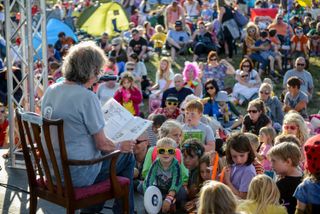
The 80s could be described as a topsy-turvy decade for Marks. After a high-profile British arrest and trial, he was acquitted on drug trafficking charges but jailed for possessing false passports.
An attempt at the straight life soon palled, and by the mid 80s he was moving literally tons of dope from East to West, until a bunch of friends were busted in Canada and he decided to retire. His pursuers kept up the chase, however, and he was finally extradited from Spain to the US in 1990. He pleaded guilty to racketeering charges, and was incarcerated in Terre Haute federal penitentiary.
In prison, his musical choices were severely limited. Not that there was a shortage of music: “I heard a lot of music,” he recalls, “but it was either hip-hop, which I loved, or country music, which I hated.” Not surprisingly, he did not try to impose his own tastes on either group of inmates.
After five years Marks was deported back to Britain. His millions of pounds were long gone: seized, lost or spent – being a fugitive is an expensive business. His Mr Nice autobiography launched his literary career, but it was the Super Furry Animals who brought him a whole new audience by plastering a selection of his passport photos on the cover of their Fuzzy Logic debut album, which also included a track called Hangin’ With Howard Marx. Ever since, Mr Nice has been an essential book shelf item for any self-respecting student.
“Creation Records got in touch to ask for my permission for the album cover and I was happy to give it, regardless of whether or not the record was any good,” Marks says. “Then I went to see them in Pontypridd and I liked their stuff a lot, and it all grew from there.”
Marks liked the Super Furry Animals so much he described them as “like hearing all the music I’ve ever liked in my life”. He and they have since shared the odd roll-up together.

Marks’s celebrity status also opened up other musical opportunities. There was Mr Nice The Album, aka A Musical Trip With Howard Marks – a free-wheeling combustible that put Nick Cave next to Nusrat Fateh Ali Khan, and Moby next to Billy Fury: “I just chose a whole load of tracks that I loved, including stuff that I listened to after I came out of prison and was trying to catch up on everything that had happened in my absence. Some they couldn’t get because there were licensing problems or they were too obscure. But I was surprised when people like The Who and Joe Strummer gave permission, which they don’t normally do, and I took that as a massive compliment.”
Marks tried to repay the compliment with his Under The Influence compilation of unsigned but deserving bands. “It was a mixture of artists that had been brought to my attention that I thought should be better known,” he explains. “I couldn’t understand why they weren’t getting more recognition. I had the idea of combining those tracks with guys that I’d worked with, like Super Furry Animals and Stereophonics, so people would buy it for them but obviously listen to the other tracks, like them and buy their records too.
“But it didn’t work.” Marks laughs, and grinds another roach into the ashtray. “You see, I just don’t have any talent in the music business.” But he’s still working on it.
This article originally appeared in Classic Rock #56.
